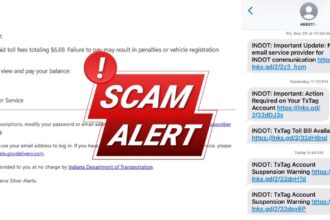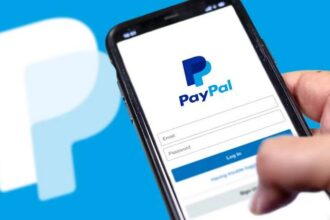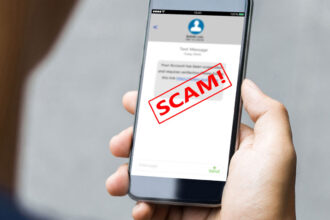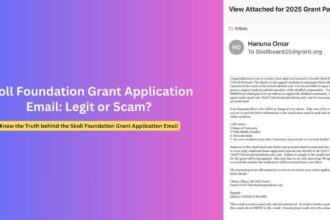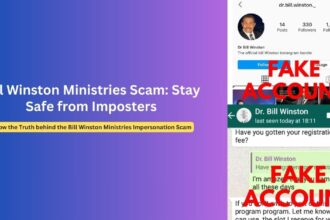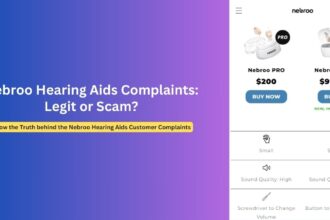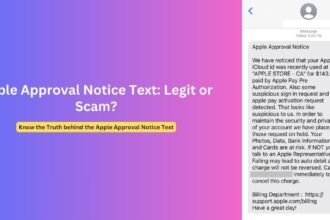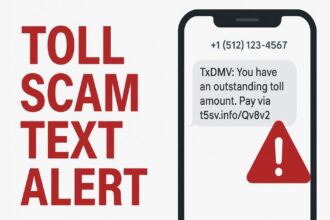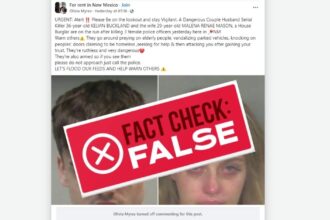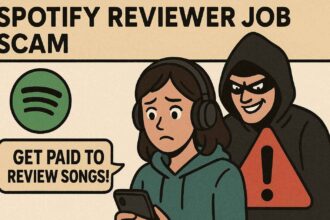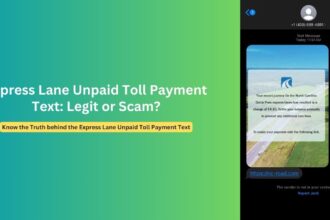In today’s challenging job market, the promise of a flexible, well-paying position can be incredibly tempting. Unfortunately, scammers are exploiting this vulnerability through sophisticated WhatsApp recruitment scams, with recruitment agency Morgan Hunt being one of the latest legitimate companies to have their identity hijacked for fraudulent purposes. This growing cybercrime trend has left thousands of job seekers at risk of identity theft and financial loss.
Overview of the Morgan Hunt WhatsApp Recruitment Impersonation Scam
Morgan Hunt, a reputable UK-based recruitment agency, has become a prime target for scammers looking to exploit job seekers’ trust. The company has issued multiple warnings about fraudsters impersonating their consultants on WhatsApp, approaching unsuspecting candidates with enticing job offers that are entirely fabricated.
The scam typically begins with an unsolicited WhatsApp message from someone claiming to be a Morgan Hunt recruiter. The message often includes a professional-sounding introduction and mentions a “flexible role” with attractive terms. What makes this scam particularly dangerous is that the perpetrators sometimes use real names and profile pictures of actual Morgan Hunt consultants, lending an air of legitimacy to their approaches.
Morgan Hunt has been explicit in their warnings: they never use WhatsApp for recruitment purposes. Any message claiming to be from Morgan Hunt on WhatsApp is, by definition, fraudulent.
How the Scam Operated
These sophisticated scams don’t rely on obvious red flags that might immediately alert potential victims. Instead, they employ carefully crafted psychological tactics:
1. Trust Building
Scammers first establish credibility by impersonating a legitimate company and creating a professional first impression. They may reference industry-specific terminology and claim to have found your profile through a professional database.
2. Gradual Engagement
Rather than rushing to request sensitive information, fraudsters engage in a multi-step process designed to build trust:
- Initial contact with vague job details
- Follow-up with more specific information
- “Interview” processes that mimic legitimate recruitment
- Requests for personal information under the guise of application procedures
3. Pressure Tactics
After establishing rapport, scammers create artificial urgency by mentioning “limited positions” or suggesting that quick action is needed to secure the opportunity.
4. Exploitation
The end goal is either to:
- Collect personal data for identity theft
- Request payment for “administrative fees,” “training,” or “equipment”
- Gain access to bank details for direct fraud
Common WhatsApp Recruitment Scam Message Patterns
Recognizing the linguistic patterns used by scammers can help identify fraudulent approaches. Here are some common message templates observed in the Morgan Hunt impersonation scam and similar recruitment fraud:
Initial Contact Messages
Greetings, I’m [Name] from Morgan Hunt Recruitment. Would you be interested in a flexible role? May I share more details please?
Hello, this is [Name] from Morgan Hunt Recruitment Agency. We have an exciting opportunity that matches your profile. Would you like to hear more?
Good day, I’m a consultant with Morgan Hunt. Are you currently looking for new opportunities? I’d like to discuss a position that might interest you.
Follow-up Messages
This role offers competitive compensation with flexible hours and remote work options.
The position offers [unrealistically high salary] for [simple tasks or minimal experience].
We need to fill this position urgently. Can we proceed with your application today?
Could you please share your CV so we can move forward with the process?
Red Flag Phrases
- “We can guarantee immediate employment.”
- “The position requires an upfront fee for training materials.”
- “We need your bank details to set up your payment account.”
- “Please download this app/software to complete the interview process.”
How to Identify Fraudulent Morgan Hunt Recruitment Offer WhatsApp Text
Distinguishing legitimate recruitment processes from scams requires vigilance and awareness of standard industry practices:
Legitimate Recruitment Practices
- Contact initiated through official company emails or LinkedIn
- Clear information about the role, responsibilities, and reporting structure
- Structured interview process with specific job-related questions
- Transparent explanation of next steps and timeline
- Interview conducted through official company platforms or professional video conferencing tools
Suspicious Recruitment Practices
- Interviews conducted solely through messaging apps
- Vague job descriptions with emphasis on earning potential rather than responsibilities
- Few questions about your qualifications or experience
- Immediate job offers without thorough screening
- Requests for payment or personal information early in the process
Major Red Flags to Watch For
When evaluating any recruitment communication, be particularly vigilant for these warning signs:
Contact Method Red Flags
- Unsolicited WhatsApp messages from recruiters
- Communications from personal email addresses rather than company domains
- Requests to continue conversations on WhatsApp after initial contact elsewhere
Content Red Flags
- Vague job descriptions with minimal details about actual responsibilities
- Promises of high compensation for minimal work
- Grammatical errors or awkward phrasing inconsistent with professional communication
- Mismatched company logos or formatting in documents
Process Red Flags
- Job offers extended without proper interviews
- Requests for personal information before a formal interview
- Pressure to make quick decisions
- Requests for any form of payment
Company Verification Red Flags
- No presence on professional networking sites
- Limited or suspicious online footprint
- Contact information that doesn’t match official company listings
- Websites with minor variations from legitimate company URLs
How to Protect Yourself from Recruitment Scams
Taking proactive steps can significantly reduce your risk of falling victim to recruitment scams:
Verify the Source
- Always independently verify the identity of any recruiter by looking them up on LinkedIn or the company’s official website
- Contact the company directly through their official channels to confirm the legitimacy of any recruitment outreach
- Check the email domain of any communications to ensure it matches the company’s official domain
Research Thoroughly
- Investigate the company through official channels, business registries, and review sites
- Cross-reference job postings with those on the company’s official career page
- Look for Morgan Hunt’s official warnings about WhatsApp scams
Protect Your Information
- Never share personal financial details via messaging apps
- Avoid sending copies of identification documents until you’ve verified the legitimacy of the request
- Be cautious about sharing your CV with unverified contacts
- Never pay any fees for job applications or interview processes
Trust Official Channels
- Use company websites, LinkedIn, and established job boards for applications
- Be wary of opportunities that aren’t listed on official company career pages
- Verify any contact information independently before using it
Report Suspicious Activity
- Report scam attempts to relevant authorities, such as Action Fraud in the UK
- Alert the company being impersonated
- Report suspicious WhatsApp accounts to WhatsApp
- Share information about scams with your network to raise awareness
Frequently Asked Questions
1. Is a Morgan Hunt WhatsApp Job Offer or Interview Text Legitimate?
No. Morgan Hunt has explicitly stated that they never use WhatsApp for recruitment purposes. Any message claiming to be from Morgan Hunt on WhatsApp is fraudulent. The company has issued clear warnings about these impersonation scams on their website and social media channels.
2. Is Morgan Hunt a Legitimate Company?
Yes, Morgan Hunt is a legitimate and well-established recruitment agency based in the UK. Founded in 1994, they specialize in public sector, not-for-profit, and commercial recruitment. The company has multiple offices across the UK and operates through official channels like their website, LinkedIn, and professional email communications. The scams impersonating Morgan Hunt are taking advantage of the company’s good reputation to deceive job seekers.
3. What Should I Do If I’ve Already Shared Personal Information with a Scammer?
If you believe you’ve shared sensitive information with a scammer impersonating Morgan Hunt or any other recruiter:
- Contact your bank immediately if you’ve shared financial details
- Monitor your accounts for suspicious activity
- Change passwords for any accounts you may have mentioned
- Report the incident to relevant authorities like Action Fraud
- Consider placing a fraud alert on your credit reports
4. How Can I Tell If a Recruitment Message Is Genuine?
Legitimate recruiters typically:
- Use company email addresses with proper domains
- Provide detailed information about the role and company
- Follow structured recruitment processes
- Never ask for payment or unusual personal information
- Have verifiable professional profiles
- Communicate through official channels, not WhatsApp
5. Why Are Recruitment Scams So Common on WhatsApp?
WhatsApp has become a popular target for scammers because:
- It offers direct access to potential victims
- Messages appear personal and trusted
- The platform lacks robust verification systems for business accounts
- It’s difficult to trace and prosecute scammers operating through the app
- Success rates are high enough to make it profitable for scammers
Conclusion
The Morgan Hunt WhatsApp scam represents just one example of a growing trend in recruitment fraud. As legitimate companies and job seekers increasingly embrace digital communication, scammers continue to evolve their tactics to exploit these channels. The sophistication of these scams means that even cautious individuals can be vulnerable.
Morgan Hunt’s experience highlights the importance of companies clearly communicating their official recruitment channels and practices to protect both their reputation and potential candidates. For job seekers, maintaining a healthy skepticism toward unsolicited messages and verifying information through official channels remains the best defense.
Remember that legitimate recruitment processes follow professional standards and ethical practices. Any deviation from these norms—particularly requests for payment or personal information through messaging apps—should immediately raise concerns.
By staying informed about common scam tactics, verifying communications independently, and following the protective measures outlined in this article, you can significantly reduce your risk of falling victim to recruitment fraud. In today’s digital landscape, your vigilance is your strongest protection against increasingly sophisticated scammers.
If you receive a suspicious message claiming to be from Morgan Hunt or any other recruiter, report it to the appropriate authorities and to the company being impersonated. Together, we can help combat these fraudulent activities and protect vulnerable job seekers from exploitation.









